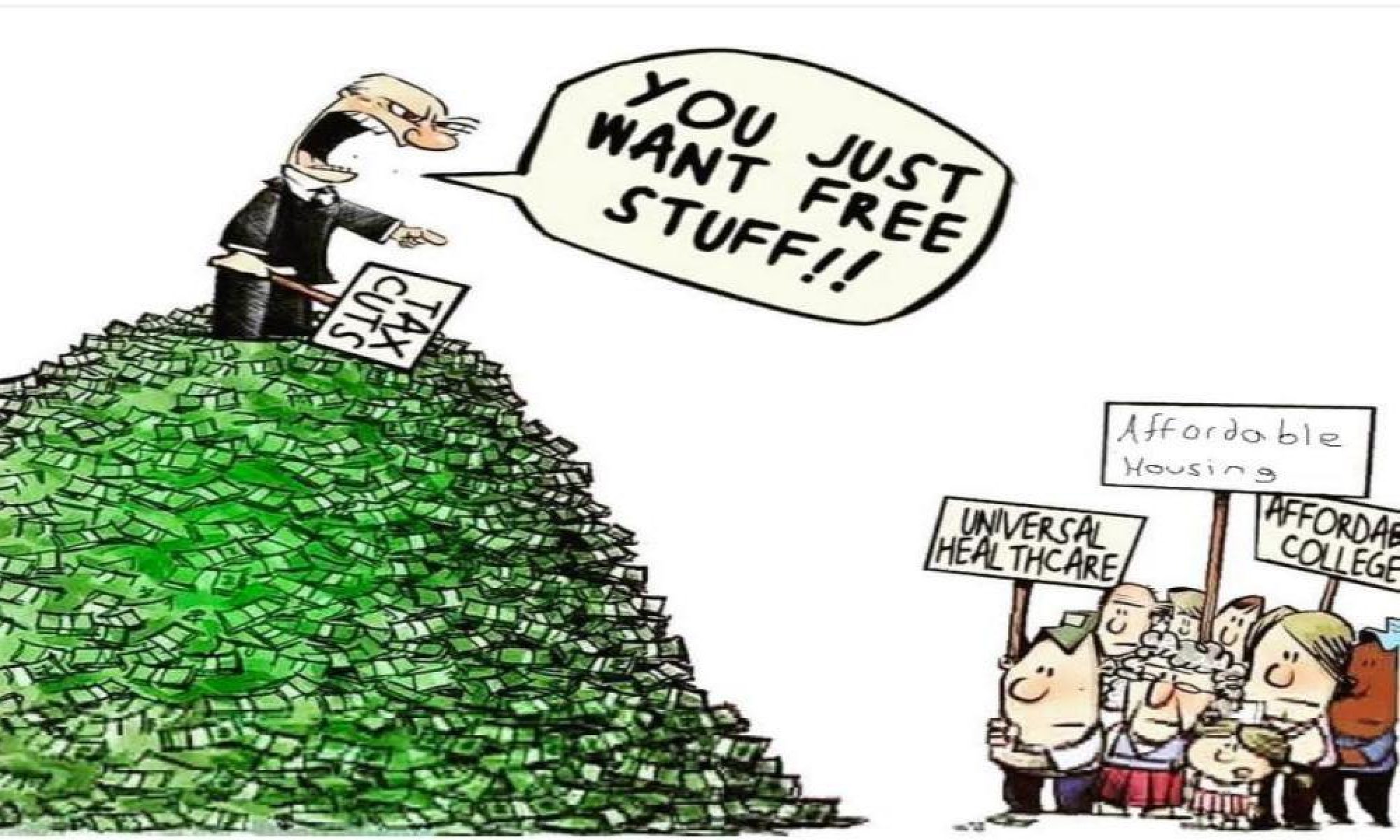经济民主这一概念即便对于很多左派来说也是非常陌生的,但有一本书对经济民主制度进行了详细介绍,就是《After Capitalism》,作者为David Schweickart,芝加哥 Loyola 大学的哲学教授。注意,此书只有英文版。下载链接:https://libgen.pw/item/detail/id/407355?id=407355
在这篇文章中我会先摘录部分内容,对经济民主制度进行初步介绍,至于全书翻译,那要等我在翻译完《社会民主主义对抗共产主义》之后再说了,毕竟我不是神仙啊,哈哈。有英文基础的左派战友可以尝试阅读,不过我先提醒一下:David Schweickart非常不了解中国,他以为中国是社会主义国家,所以在书中对中国进行了错判,这是非常可惜的一点。同时他对苏联的国家资本主义模式也发生了错判。不过好在这并不影响他的经济民主设想。
书籍内容摘录:
Economic Democracy, like capitalism, can be defined in terms of three basic features, the second of which it shares with capitalism:
经济民主,就像资本主义一样能够被定义为三个基本特性,其中第二种特性是和资本主义共享的:
•
Worker self-management: Each productive enterprise is controlled democratically by its workers.
工人自我管理:每个生产企业都被企业的工人们民主的控制。
•
The market: These enterprises interact with one another and with consumers in an environment largely free of governmental price controls.
Raw materials, instruments of production, and consumer goods are all bought and sold at prices largely determined by the forces of supply and demand.
市场:这些企业和其他企业以及消费者在摆脱政府价格控制的环境中交易。原材料,生产工具,消费资料都用被供求力量决定的价格购买。
•
Social control of investment: Funds for new investment are generated by a capital assets tax and are returned to the economy through a network of public investment banks.
投资的社会控制:新的投资所需的基金来源于资产税,通过公共投资银行组成的网络还给经济。
这是一个简化的模型,实际上经济民主制度要比这一模型复杂得多,而政府在经济民主制度中发挥着关键性的作用,投资的社会控制就是由民选政府部门负责管理执行的。此外,政府也负责提供捍卫所有人的人权的福利国家制度,全民公费教育,全民公费医疗,全民公费养老,生育补贴,儿童抚养补贴以及社会化抚养机构(例如公立托儿所),可负担的住房,为失业的人提供工作,保证所有人都能获得工作。(以上均概括自《after capitalism》中关于经济民主的章节。注意,David Schweickart是反对基本收入的,他认为权利和责任对等,而获得政府福利保护的有工作能力的人需要承担责任,就是进行工作,但资本主义为了利润最大化必然会制造失业大军以压低工资和控制工人,而在社会主义中,政府的责任是为那些没有工作的人提供一份合适的工作。在经济民主下,工人对利润分配有决策权,这会成为一种很大的工作动力,但经济民主本身并不保证所有人都能获得工作,当然,经济民主也不会像资本主义那样故意制造失业大军。)
In essence, a firm under Economic Democracy is regarded not as a thing to be bought or sold (as it is under capitalism) but as a community. When you join a firm, you receive the rights of full citizenship; you are granted an equal voice, namely, an equal vote in the community. When you leave one firm and join another, these rights transfer. With rights come responsibilities,in this case the responsibilities of paying the capital assets tax and maintaining the value of the assets you are using.
本质上来说,经济民主下的企业并不被当作一种可以被买卖的物品(而在资本主义下企业是可被买卖的物品),而是一个社区。当你加入一个企业时,你得到了完全的公民权;你获得了平等的发言权,意思是,社区中的平等的一票。当你离开一个企业然后加入另一个时,这些权利也相应转移过去。权利和责任是对应的,在这一案例中责任是缴纳资本税和维护你使用的资产。
In Economic Democracy, investment funds are generated in a more direct and transparent fashion. We simply tax the capital assets of enterprisesland, buildings, and equipment. This tax, a flat rate tax, may be regarded as a leasing fee paid by the workers of the enterprise for use of social property that belongs to all.
在经济民主中,投资基金通过更直接和透明的方式产生。我们简单的对企业土地,建筑,和设备收取资本税。这种税收,一种扁平税率的税收,被当成是企业工人们为了使用属于所有人的社会财产而付的租金。
Receipts from the capital assets tax constitute the national investment fund, all of which is earmarked for new investment. (“New investment” is simply investment over and above that financed by enterprises directly from their own depreciation funds.) All new investment derives from this fund. In stark contrast to capitalism, Economic Democracy does not depend on private savings for its economic development.
这些资本税被收取到国家投资基金中,作为新的投资的专项。(“新投资”是一种直接资助给企业的简单投资,直接来自于他们自己的折旧资金。)与资本主义相反的是,经济民主并不依赖私人储蓄来进行经济发展。
The National Legislature国家立法机关
..
Determines the capital assets tax rate.决定资产税税率。
..
Decides how much of the investment fund is to be used for capital spending on public projects national in scope.在国家层面上决定公共工程需要使用多少投资基金(剩余的被分配到地方)
(The rest is allocated to the regions.)
Regional Legislatures地方立法机关
..
Decide how much of their portion of the investment fund is to be used for capital spending on public projects regional in scope. (The rest is allocated to their communities.)在地方层面上决定需要使用多少投资基金进行公共工程(剩余的被分配到社区)
Local Legislatures本地立法机关
..
Decide how much of their portion of the investment fund is to be used for capital spending on public projects in their communities. (The rest is allocated to their banks.)决定在社区公共工程上使用多少投资基金(剩余的被分配到他们的银行中)
Banks银行
..
Decide which grant requests from local firms to honor.决定从当地公司获得哪些资助请求。
..
Set up entrepreneurial divisions to encourage the setting up of new businesses.设立企业的分支机构,以鼓励进行新的商业活动。
..
Decide what new enterprises to fund.决定资助哪些新企业。
I’m also uncomfortable with the ethical principle invoked here, which allows an able-bodied person to claim a right to the fruits of other people’s labor, without being obliged to contribute anything in return. Socialists have long argued that income from capital derives from the unpaid labor of those who work-and hence is exploitative. As we saw in chapter 2, this criticism is essentially correct. So long as work is not fun-which it is not for most people, nor will it magically become so under Economic Democracy socialists should insist on a measure of reciprocity. To my way of thinking, it is far better, ethically and programmatically, to target public funds to basic health care, child care, education, and retirement, while at the same time guaranteeing decent jobs for all able-bodied citizens whose ages fall within an agreed-upon span, than to guarantee everyone an unconditional level of support, even those who can but don’t want to engage in paid labor.
我也对其中的道德原则感到不舒服,基本收入允许了身体健全有工作能力的人获得了拿取其他人的劳动果实的权利,而不被要求回报任何东西。社会主义者们很长时间以来都在争辩说资本的收入来自于没有被付工资的工人们的劳动——因此这是剥削。就像我们在第二章所看到的那样,这一批判是非常正确的。(第二章是对资本主义制度的分析)。很长时间以来工作都不是令人开心的——对于大部分人来说都是不开心的,在经济民主下也不会魔术般得变得开心——社会主义者们应该坚持礼尚往来。我的思考是,从道德上和实际操作上来说,将公共资金花在基本医疗服务,儿童抚养,教育,和退休上,同时保证所有年龄在定义的范围内的有工作能力的公民们获得一份合适的工作,比保证每个人甚至是那些能够但不想成为付钱劳动力的人都获得一份无条件的支持,要好很多。
In fact, we can respond to these doubts with empirical findings that are as unambiguous as one would dare hope, given the complexity and significance of the issue. There is overwhelming evidence, based on scores of studies of thousands of examples, that both worker participation in management and profit sharing tend to enhance productivity, and that worker-run enterprises are almost never less productive than their capitalist counterparts.They are often more so.
事实上,我们可以对这些怀疑用一个人敢希望的明确的实证结果进行反驳,它们在这一问题上是复杂的和显著的。这里有压倒性的证据,它们基于对上千实例的研究分析,工人们在管理和利润分配上的参与会增强产能,而工人们运作的企业几乎不比他们的资本主义对手产能低。他们经常产能更高。
As to the efficiency effects of greater worker participation, the HEW study of 1973 concludes, “In no instance of which we have evidence has a major effort to increase employee participation resulted in a long-term decline in productivity.” Nine years later, surveying their empirical studies, Derek Jones and Jan Svejnar report, “There is apparently consistent support for the view that worker participation in management causes higher productivity. This result is supported by a variety of methodological approaches, using diverse data and for disparate time periods.” In 1990, a collection of research papers edited by Princeton economist Alan Blinder extends the data set much further and reaches the same conclusion: worker participation usually enhances productivity in the short run, sometimes in the long run, and rarely has a negative effect. Moreover, participation is most conducive to enhancing productivity when combined with profit sharing, guaranteed long-range employment, relatively narrow wage differentials, and guaranteed worker rights (such as protection from dismissal except for just cause)–precisely the conditions that will prevail under Economic Democracy.(8)
更高的工人参与程度的效果是很明显的,1973年的HEW研究总结说,“ 没有证据表明增加雇员参与会导致长期的产能降低。”九年后,调查研究他们的实例,Derek Jones和Jan Svejnar报告说,“实例显然一致的支持工人参与管理提升产能。这一结论受到各种使用多种数据的和不同时间周期的不同研究方法的研究支持。”在1990年,一系列Princeton经济学家Alan Blinder编写的研究论文大大扩展了数据集合,得出了相同的结论:工人参与经常在短期内增加产能,有时在长期内增加产能,几乎没有副作用。更多时候,利润分配与保证长期雇佣结合参与是最有力于提升产能的,缩小工资差距,保证工人权利(例如不被解雇,除了有正当理由)——很显然这一条件会在经济民主下变得更好。
8. Citations in this paragraph are from U.S. Department of Health, Education, and Welfare, Work in America (Cambridge, Mass.: MIT Press, 1973), 1 12; and Derek Jones and Jan Svejnar, eds., Participatory and Self-Managed Firms: Evaluating EconomiC Performance (Lexington, Mass.: Lexington Books, 1982), 11. See also Alan Blinder, ed., Paying for Productivity: A Look at the Evidence (Washington, D.C.: Brookings,1990), especially the contribution by David Levine and Laura Tyson.
在经济民主下人们的收入当然还是会有差距,因为本身人们创造出来的财富就是不同的,但是不会像资本主义那样因为剥削和对生产资料的私人霸占而产生极大的贫富差距。经济民主更不会像资本主义那样为了利润最大化而不顾任何后果,疯狂的四处破坏环境,而那些资本家们却躲在环境优美的避税天堂里逍遥自在。人民已经证明了自己在政治民主上的能力,而政治民主的经验也会为经济民主提供有价值的参考。经济民主并不是空想,而是一个可到达的未来,一个社会主义者们为了从资本主义的魔爪下拯救人类和这个地球而设想并努力去实现的未来。
